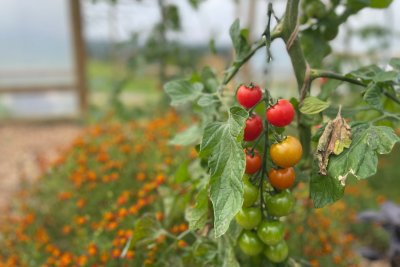The Sustainable Fish Cities campaign today welcomed the UK government's publication of the Eatwell Guide, giving official guidance on what constitutes a healthy diet. For the first time, it recommends eating only sustainably sourced fish, with explanatory notes that promote Marine Stewardship Council's certified sustainable seafood.
"Sustain and our Sustainable Fish Cities campaign have been arguing for over 15 years that official healthy eating advice must also encourage people to choose only verifiably sustainable fish. Previous governments and their agencies have ignored or fudged the issue, treating healthy eating as separate from environmental concerns. Such advice is followed by shoppers, but also - importantly - by professionals such as nutritionists and caterers working in schools, hospitals and care homes, as well as by many procurement officers and nutritionists working for food companies and buying fish in enormous volumes. So the advice offered by government is crucial to the well-being of people, but also of the fish stocks and ecosystems that feed us."
"The Sustainable Fish Cities campaign is proud to have helped caterers that serve over half a billion meals a year to commit to serving only verifiably sustainable fish. We hope that many more will soon follow suit, encouraged to do so by this official recognition from government that long-term healthy eating must be based on a truly sustainable approach to food production, including sustainable fish."
ENDS
For Further Information, please contact:
Tel: 0203 5596 777
Email: ruth@sustainweb.org
Sustain: The alliance for better food and farming
Development House, 56 - 64 Leonard Street, London EC2A 4LT
Notes
[1] Produced by Public Health England (PHE), the Eatwell Guide is UK Government’s official recommendation for the amount and type of fruit, vegetables, protein, dairy and carbohydrate that constitute a healthy, balanced diet. It replaces the previous ‘Eatwell plate’ and can be found on the PHE website. This is the first time that sustainability has been included, and beyond the sustainable fish advice, PHE collaborated with the Carbon Trust to assess the impact of changes in recommendations within the Eatwell Guide on other sustainability considerations.
[2] The Marine Stewardship Council is an ecolabelling organisation which sets an international scientific standard for sustainable fishing. Fisheries undergo a rigorous assessment, and those that pass are recognised with the blue fish-tick ecolabel. About 10% of global fisheries are either certified or in assessment.
[3] Sustainable Fish Cities is a campaign aiming to end overfishing by transforming the way fish is served and celebrated in restaurants and public-sector institutions, and how it is promoted through Government Policy. The project is convened by Sustain: The alliance for better food and farming, alongside marine conservation and food organisations working on sustainable seafood issues including Fish2Fork, the Marine Conservation Society; Marine Stewardship Council; Pisces Responsible Fish Restaurants; The Sustainable Restaurant Association.
Sustainable fish standards are also supported by:
• The Food for Life catering mark: Caterers must avoid the most unsustainable fish to achieve the ‘Bronze’ award, and are awarded points for each percent of spend on MSC Certified fish at silver and gold. More information here: http://www.sacert.org/catering.
• Schools must serve fish as part of the new School Food Standards. The standards recommend that it be sustainable. They can be found here: http://www.schoolfoodplan.com/standards/.
• The Department of Health - From April 2015, all fish served in hospitals is required to be demonstrably sustainable as part of the Hospital Food Standards, available here:https://www.gov.uk/government/uploads/system/uploads/attachment_data/file/504866/Hospital_Food_Panel_Report.pdf
• NHS Wales – Committed to making only sustainable fish available to NHS hospitals in Wales through NHS Wales Shared Services Partnership, more information here:https://www.sustainweb.org/news/mar15_endangered_fish_removed_from_hospital_food_in_wales/
So far caterers serving over 500 million meals per year have committed to the pledge standards. Find out more here: https://www.sustainweb.org/sustainablefishcity/
[4] The ‘Fish to Eat’ and ‘Fish to Avoid’ lists are produced and published by the Marine Conservation Society, the charity working to protect the seas, wildlife, and beaches in the UK.
Published Thursday 24 March 2016
Sustain: Sustain The alliance for better food and farming advocates food and agriculture policies and practices that enhance the health and welfare of people and animals, improve the working and living environment, enrich society and culture and promote equity.





